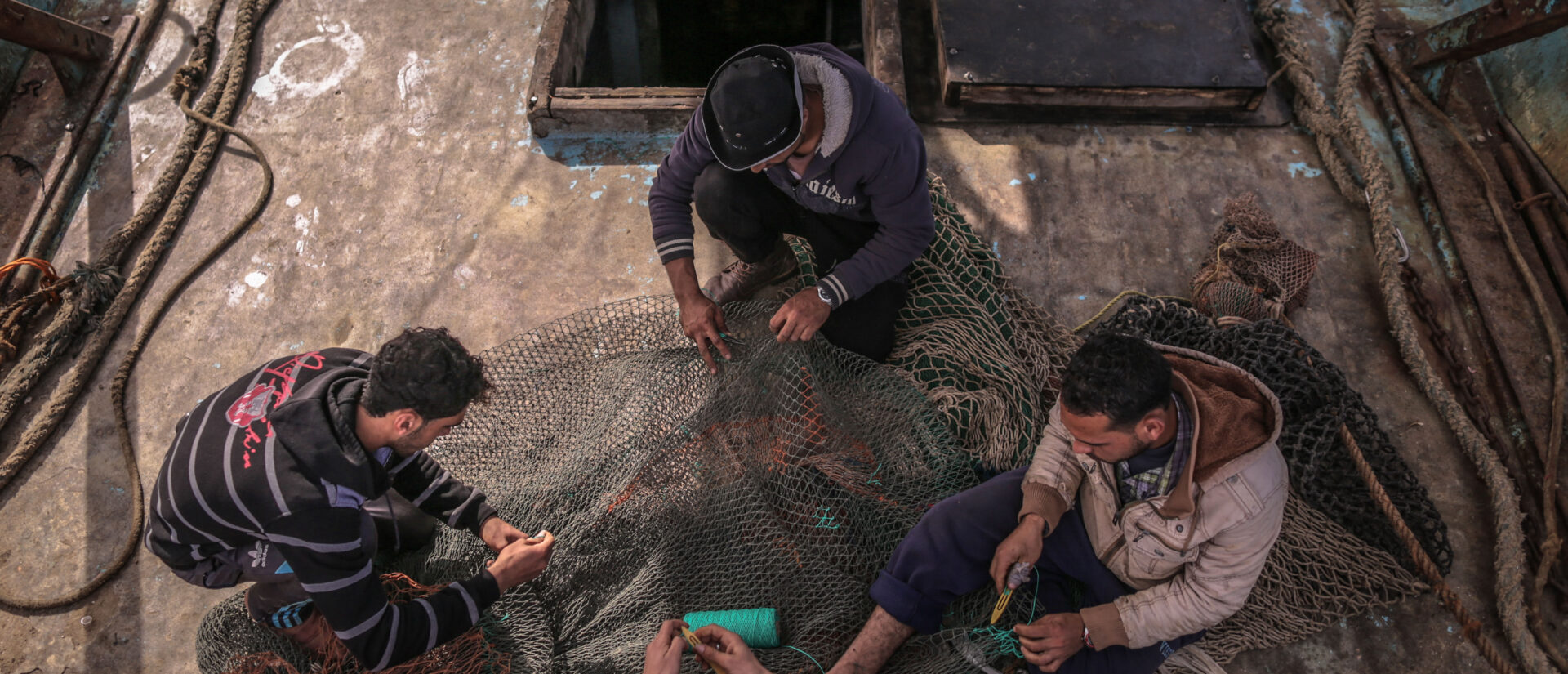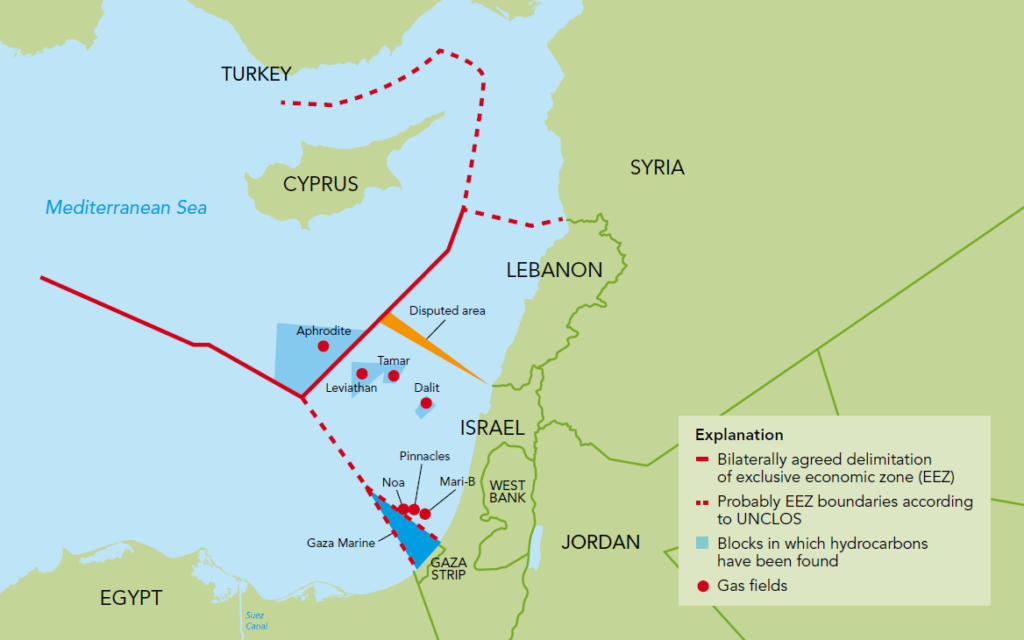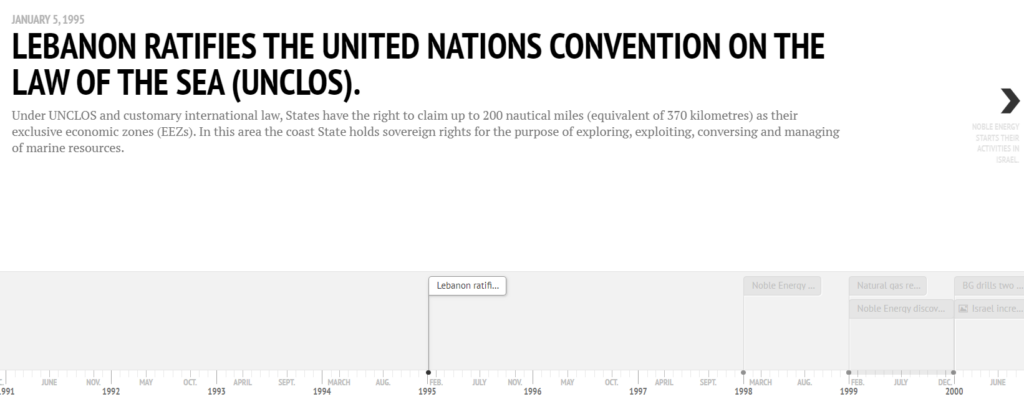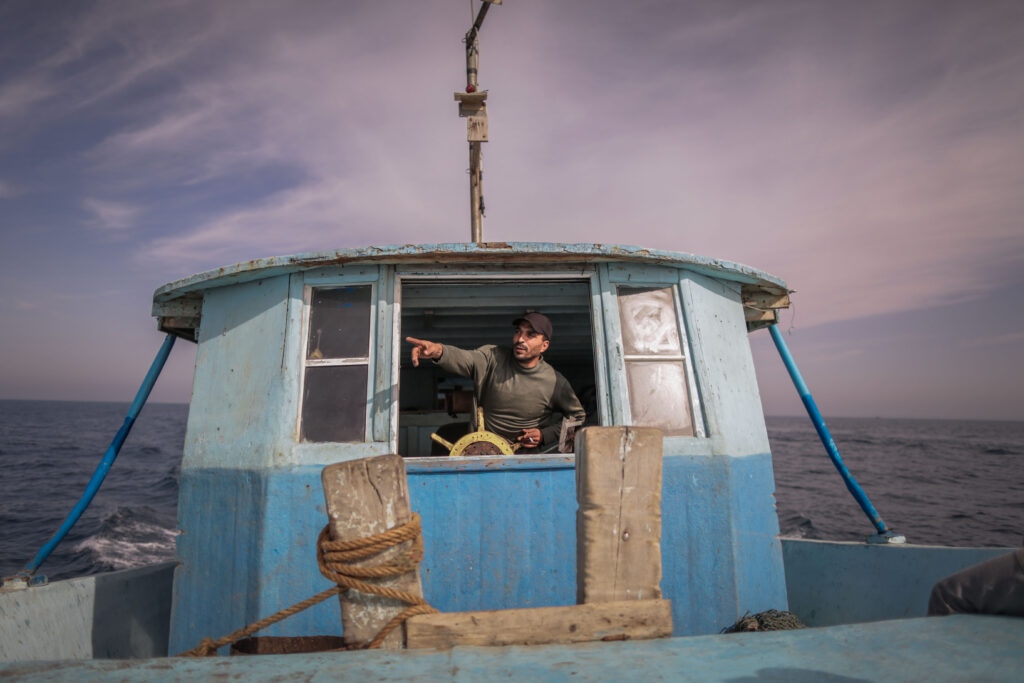
Beneath troubled waters: Palestinian access to the sea denied by Israel
For generations Muhammad, aged 56, and his family have depended on fishing for their livelihood. Each day he sets sail from the port in Gaza City along with his three sons, aged 17 to 23.
But fishing is no longer what it used to be. Almost every day Palestinian fishing boats are chased and shot at by the Israeli Navy. On 21 February 2017 at 7:30am the Navy opened fire on Muhammad’s boat. His oldest son was shot in his side. The Navy ordered Mohammed and his two other sons to take off their clothes, jump into the water and swim to the Israeli boat. Once aboard, they were all arrested and their boat confiscated.
Access to the sea
The demarcates Palestinian access to the sea, granting them access to an area 20 nautical miles from the Gaza coast for fishing and recreation, and from which to extract natural resources such as gas. However, these rights of access are often denied by the Israeli authorities. For several years the Israeli navy has systematically opened fire on Palestinian fishermen, regardless of whether they were fishing within or outside their authorised area.
Mohammed says: “Often, while we are no more than three nautical miles from the coast, we are shot and our boats are damaged. It does not matter what is and what is not permitted. Our security depends on the mood of Israeli soldiers.”
Large gas reserves
The size of potential oil and gas reserves in the eastern part of the Mediterranean has become increasingly clear in recent years. In 2010, the U.S. Geological Survey estimated that the Levant Basin Province contains “a mean of 1.7 billion barrels of recoverable oil and a mean of 122 trillion cubic feet of recoverable gas”. These estimates would place the Eastern Mediterranean among the world’s most prominent producers of natural gas in the decades to come. The northern end of the Levant Basin lies near the Syrian port of Tartus, runs down the coastlines of Lebanon, Israel, and the Gaza Strip (part of the occupied Palestinian territory), and west towards Cyprus (see Map 1).

Noble Energy
Noble Energy began to tap into these reserves in Israel in 1998, and to date its two wholly-owned subsidiaries have invested more than US$6 billion. Among its first discoveries were the relatively small Noa Field and the Mari-B Field, discovered in 1999 and 2000 respectively, which border Palestinian territorial waters. Later, the larger Tamar and Leviathan fields, discovered in 2009 and 2010 respectively, were opened up further north. Leviathan constituted Noble Energy’s largest ever discovery and the largest natural gas find globally in the prior decade. However, inside Israel the discovery of Leviathan has been subject to much controversy.
Conflict between Israel and Lebanon over gas
UNCLOS – United Nations Convention on the Law of the Sea (pdf)(opens in new window)
Part of Noble Energy’s operations in the Eastern Mediterranean is located in a maritime area that is subject to a border dispute between Israel and Lebanon. Under the United Nations Convention on the Law of the Sea (UNCLOS), States have the right to claim up to 200 nautical miles from the sea coast as an exclusive economic zone (EEZ). However, no maritime border has been set between Israel and Lebanon and there is no agreement on the limits of the EEZs. However, Israel unilaterally declared its EEZ in July 2011, including an 850 square metre area that overlaps with coordinates requested by Lebanon for its own EEZ the year before at the UN. These overlapping claims, along with the gas discoveries of Noble Energy (in particular the Tamar, Leviathan, Tanin and Karish fields) have led to mutual threats of violence.
The two parties do not have diplomatic relations and so it is impossible to solve the dispute bilaterally or through arbitration. To make things more difficult, invoking the UNCLOS dispute settlement mechanism is not possible as Israel has not ratified the convention.
However, this controversy has not prevented Noble Energy continuing its operations in the region – operations that risk worsening the conflict and violating the territorial integrity of Lebanon, and right to self-determination of the Lebanese people.
Watch the timeline
 (opens in new window)
(opens in new window)
No-man’s water outside the Gaza Strip
The sea-bed off the coast of the Gaza Strip contains an estimated 2.4 trillion cubic feet of natural gas. In 1999, the Palestinian Authorities (PA) awarded a 25-year exploration licence to British Gas Group (BG). The following year, BG drilled two wells in the newly discovered Gaza Marine natural gas reserve, which is estimated to contain 1 trillion cubic feet of natural gas. In 2001, Noble Energy legally challenged BG’s (PA-issued) licence to explore Gaza Marine. The court gave no definite verdict, stating that Gaza Marine would be “no-man’s water” until a final peace deal between Israel and Palestine was reached.
Noble Energy intensifies its exploitation, potentially illegally extracting Palestinian gas
In the context of the vacuum resulting from the court ruling, Noble Energy increased its exploitation of the Israeli gas fields while Palestinian were denied access to their natural gas reserves.
And that wasn’t all. After Israel’s Mari-B field became depleted in 2012 and the gas pipeline between Al Arish (Egypt) and Ashkelon (Israel) became the target of sabotage following the 2011 Egyptian uprising, Israel’s gas supply became less stable. In response, the Israeli government saw the need to swiftly develop the Noa Field which is contiguous to Border Field – a 1.4 trillion cubic feet gas reserve located in Palestinian waters. Arguably, extraction of gas from Noa Field could lead to draining gas from the Palestinian Border Field. Gas extraction from a contiguous field requires a cooperation agreement with the Palestinian Authority under the Oslo Accords. Despite the absence of such an agreement with the PA, Noble Energy and the Delek Group expeditiously extracted gas from Noa between 2012 and 2013, risking the illegal extraction of Palestinian natural gas from Border Field.
Noble Energy contributes to the continued existence of illegal settlements
When Israel occupied the Palestinian territory in 1967 it replaced the territory’s existing energy supply agreements with a single concession to the Israeli Electric Company (IEC) – a practice that today fits with a larger pattern (also identified by the UN) of using the occupied Palestinian territory as a captive market for exports from Israel.
Fourth Geneva Convention (pdf)(opens in new window)
Noble Energy benefits financially from IEC’s effective use of the occupied Palestinian population as a captive market to which it sells the electricity it generates, as at present Noble Energy is the only company delivering natural gas to the IEC. The IEC converts gas into electricity which is delivered to Israel, the Gaza Strip and West Bank, but also to illegal Israeli settlements in the West Bank. In this way, Noble Energy actually contributes to war crimes committed by Israel; the acts underlying the construction and maintenance of settlements constitute violations of international humanitarian law as laid down in the Fourth Geneva Convention.

Fishermen are losing out
The naval blockade has led to a complete collapse of the fishing industry in Gaza.
Palestinian human rights organisation PCHR says: “Of the 10,000 people who used to work in the fishing, there are now 6,000 unemployed. The impact of the closure and restrictions on access to the sea is disastrous for fishing. From an ancient tradition and respected profession, the prolonged blockade has transformed the fishermen in the Gaza Strip to one of the most marginalised and poorest working classes in Gaza.”
Although the underlying motivations are difficult to verify, the imposition of a comprehensive no-go area around the gas rigs raises questions about the relationship between the general naval blockade and the development of Israel’s gas reserves. What is clear, however, is that fishermen suffer the most.
Noble Energy should exert her leverage to try and end the unlawful movement restrictions imposed on Palestinian fishermen like Mohammed. By not doing so, their activities only contribute to the extreme poverty in which the majority of the Palestinians
Do you need more information?
-

Lydia de Leeuw
Researcher
Related news
-
 Additional evidence filed against Booking.com for profiting from illegal settlementsPosted in category:News
Additional evidence filed against Booking.com for profiting from illegal settlementsPosted in category:News Lydia de LeeuwPublished on:
Lydia de LeeuwPublished on: -
 The hidden human costs linked to global supply chains in ChinaPosted in category:News
The hidden human costs linked to global supply chains in ChinaPosted in category:News Joshua RosenzweigPublished on:
Joshua RosenzweigPublished on: -
 The power to extract value from the value chainPosted in category:Long read
The power to extract value from the value chainPosted in category:Long read Rodrigo FernandezPublished on:
Rodrigo FernandezPublished on:

